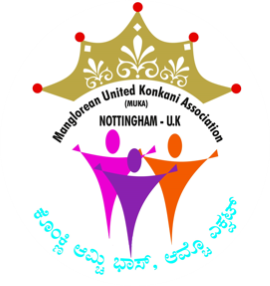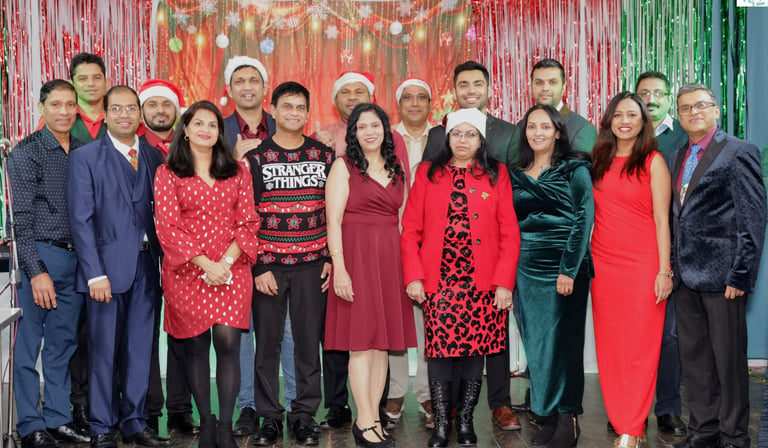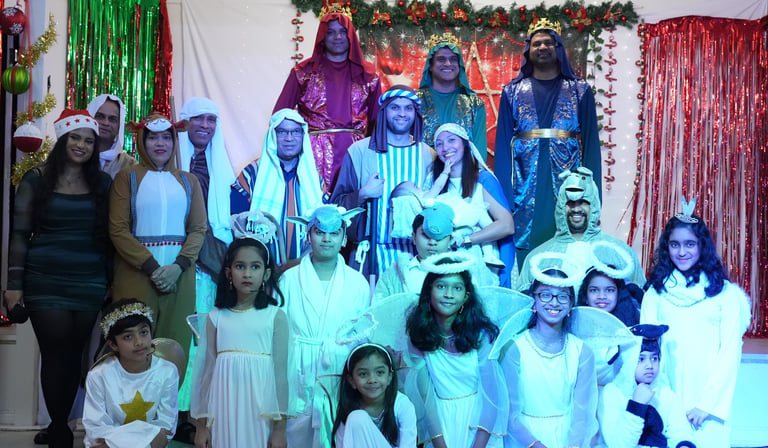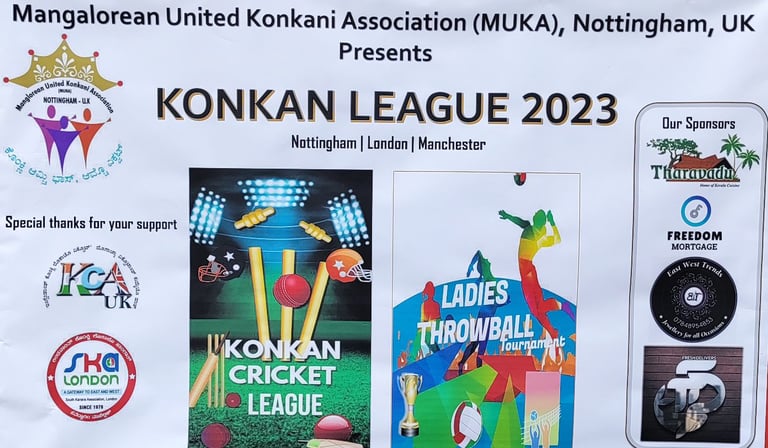
Mangalorean United Konkani Association (MUKA) Nottingham, UK
Our Story
MUKA’s journey began in 2006 when a group of passionate Mangalorean families from Nottingham and Derby came together with a shared vision to create a home away from home. Having migrated to the UK, particularly to the East Midlands of England, they sought to foster a sense of belonging, support, and cultural unity among individuals originally from Mangalore, Karnataka—historically known as Kodial or Tulu Nadu, located on India’s southwestern coast.
Our Language & Cultural Legacy
India is a land of incredible diversity, and Konkani, our mother tongue, is an integral part of our heritage. Recognized as an official language of India, Konkani is primarily spoken along the Konkan coast, covering Goa, Karnataka, Maharashtra, and parts of Kerala. It is also spoken in Gujarat (Dang district) and Union Territories like Dadra and Nagar Haveli and Daman and Diu.
With its many dialects and rich linguistic variations, Konkani serves as a vital cultural bridge, connecting Mangaloreans across the world and preserving our traditions for future generations.


At MUKA, we are dedicated to celebrating and preserving our Mangalorean identity. As a non-profit organization, we host a variety of cultural and social events to bring our community together, including:
Konkani Easter Mass, attended by over 300 members from across the UK.
Cultural programs that showcase Mangalorean traditions.
Charity fundraisers to support meaningful causes.
Family-friendly community picnics and social gatherings.
Indoor and outdoor sporting events like cricket and volleyball to promote health and camaraderie.
Our Mission & Community Initiatives


MUKA is more than just an association—it’s a family. Our goal is to create a warm, welcoming space where Mangaloreans in the UK can connect, celebrate, and pass on their rich cultural legacy to the next generation. Whether you are a long-time resident or new to the UK, we welcome you to be part of our journey as we continue to strengthen our roots, relationships, and traditions.

